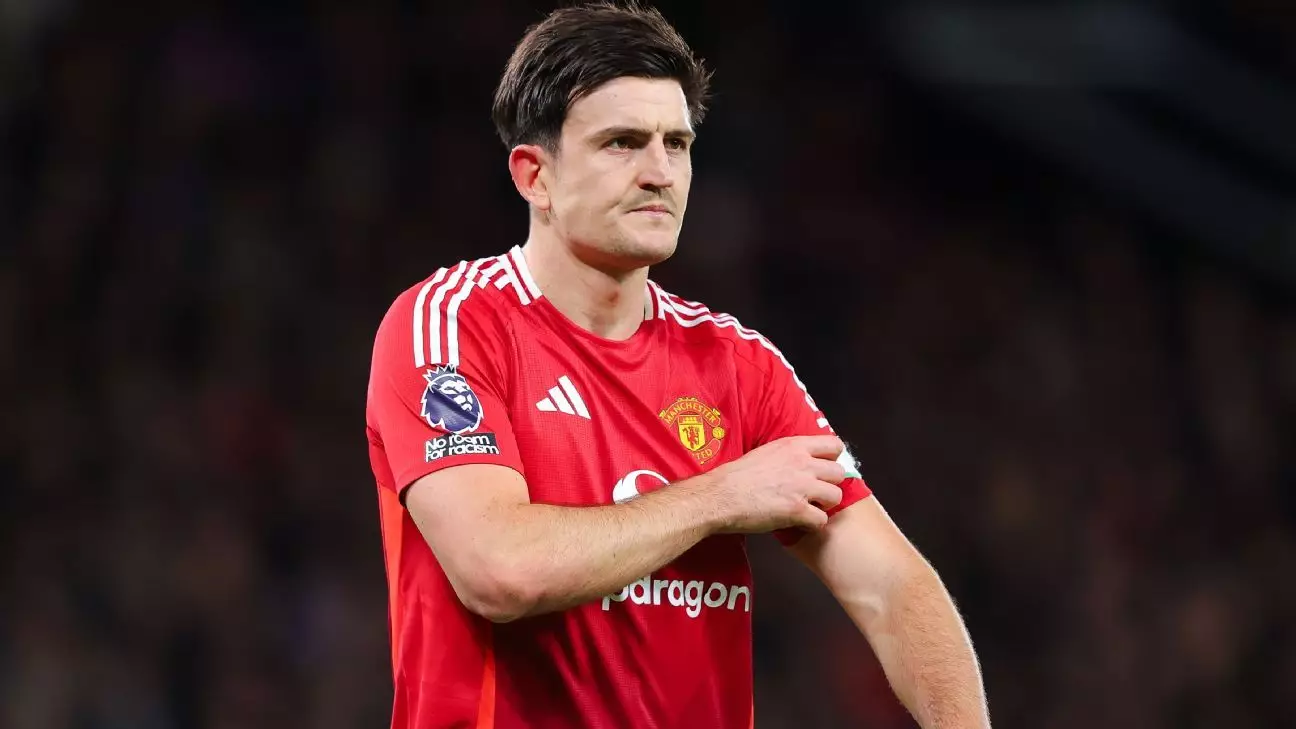Manchester United finds itself in a precarious state, struggling both on and off the pitch. After suffering four straight defeats in the Premier League, the team’s morale is at an all-time low, and this lack of confidence is exacerbated by a glaring absence of leadership within the squad. Coach Ruben Amorim has openly acknowledged this deficiency, emphasizing the pressing need for leaders who can rise to the occasion during challenging times. This situation is particularly concerning as United prepares for a high-stakes match against their fierce rivals, Liverpool, which they have not won since 2016.
One of the most significant developments in recent weeks has been the extension of Harry Maguire’s contract until June 2026. Amorim’s decision to retain Maguire highlights the club’s recognition of the defender’s leadership potential, despite his underwhelming performance on the pitch. In a club that has historically prided itself on its strong leadership qualities—think of legends like Eric Cantona or Roy Keane—Maguire’s role as a captain is under scrutiny. The coach’s assertion that the squad is “starving for leaders” suggests that the responsibility for guiding and motivating the team now rests heavily on Maguire’s shoulders.
While the decision to extend his stay could be seen as a vote of confidence, it raises questions about the club’s broader strategy for cultivating leadership. Are they addressing a short-term fix instead of instilling a long-term vision that includes developing a new generation of leaders? Maguire’s need to “improve” in terms of leadership indicates that the team’s problems are not solely tactical; they are fundamentally psychological and emotional as well.
Analyzing the Team’s Form
As United sits in a disappointing 14th place in the Premier League, it’s clear they are struggling not just to score goals, but also to maintain composure under pressure. The statistics are alarming; not only have they gone goal-less for three consecutive matches, but they are also dangerously close to the relegation zone. Amorim’s comments about Liverpool demonstrate an acute awareness of the vast chasm between the two teams: Liverpool is currently perched at the top of the table, boasting a significant points lead over United.
In this context, the upcoming fixture at Anfield is critical. Amorim has expressed optimism, focusing on the tactical preparations made during their training sessions. However, the hard truth remains: the players must translate these preparations into performance, which has proven difficult in recent weeks. The psychological burden of facing a confident Liverpool side that has enjoyed the fruits of consistent performance only adds to the challenge.
Amorim’s support of young forward Joshua Zirkzee serves as a poignant reminder of the emotional toll that the game can take on players. Zirkzee faced harsh criticism from the fans after being substituted just 30 minutes into a game against Newcastle, indicating how quickly public sentiment can turn in modern football. The incident prompts a deeper reflection on the mental resilience required from players today. The expectation to perform at an elite level at all times can be overwhelming, and when a player’s performance wavers, the fallout can be swift and brutal.
Amorim’s understanding of these emotional dynamics is vital for fostering a healthy atmosphere within the squad. His acknowledgment of Zirkzee’s situation illustrates a critical aspect of leadership: the ability to empathize with players and provide the necessary support when they falter. Creating a culture that prioritizes mental resilience alongside technical skill may well prove essential in navigating the turbulent waters that lie ahead for United.
The road ahead for Manchester United is fraught with challenges, and sorting through the tangled issues of leadership, confidence, and tactical execution will not happen overnight. Amorim’s admission about the need for improved leadership, particularly from Maguire, serves as a microcosm of the broader challenges facing the team. As United gears up for their encounter against Liverpool, the focus must be on not only tactical improvements but also on instilling a sense of collective responsibility among the players. The time for introspection and change is now, and the future of Manchester United relies heavily on how effectively they can convert this potential crisis into an opportunity for growth.

